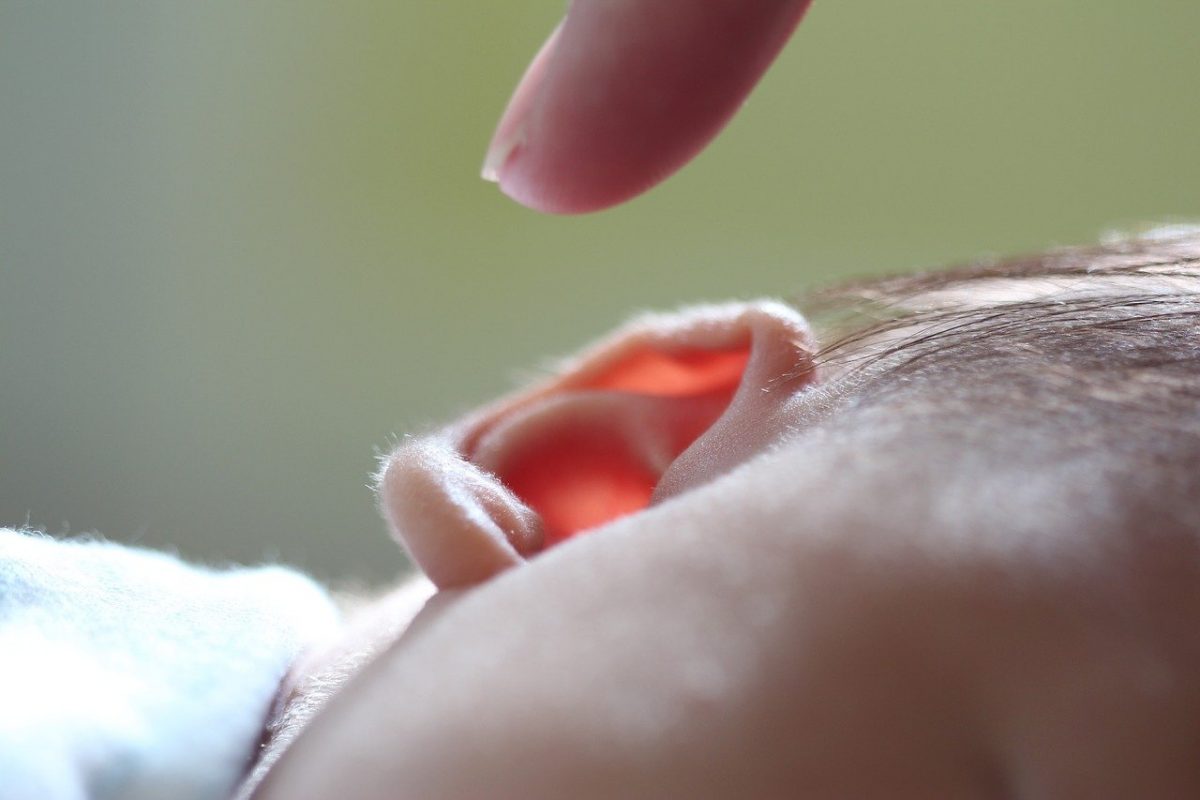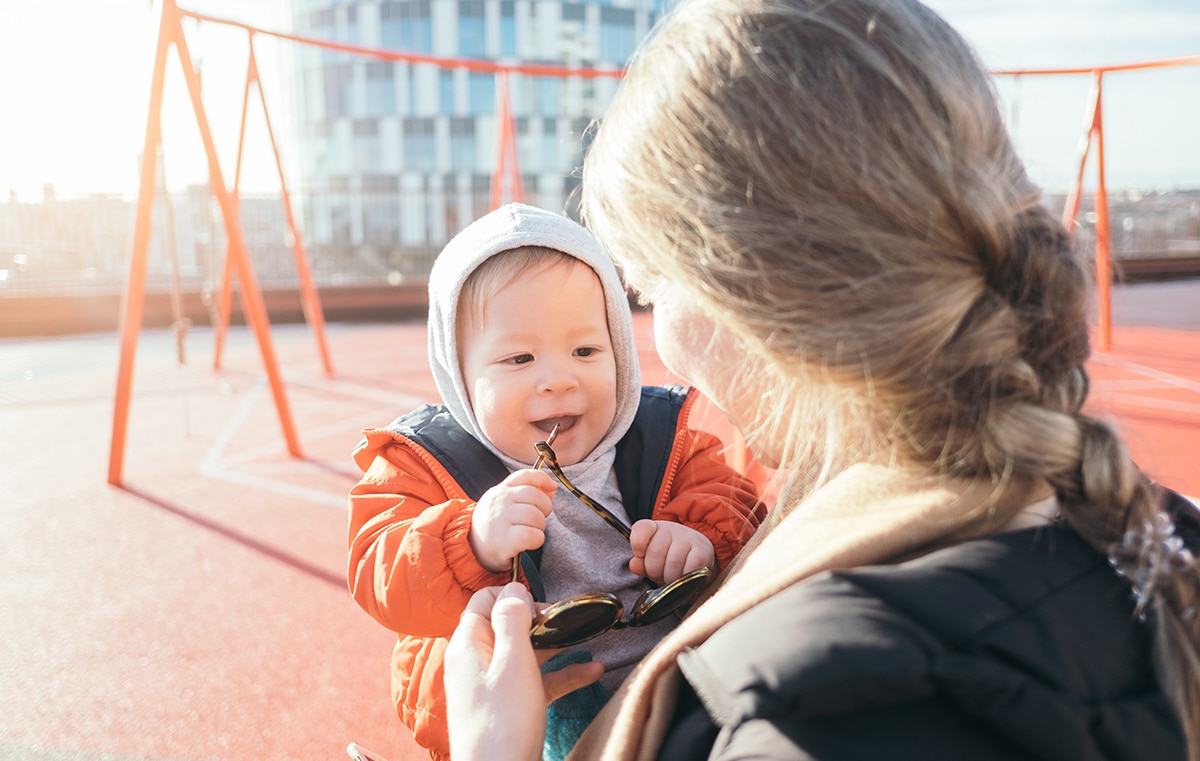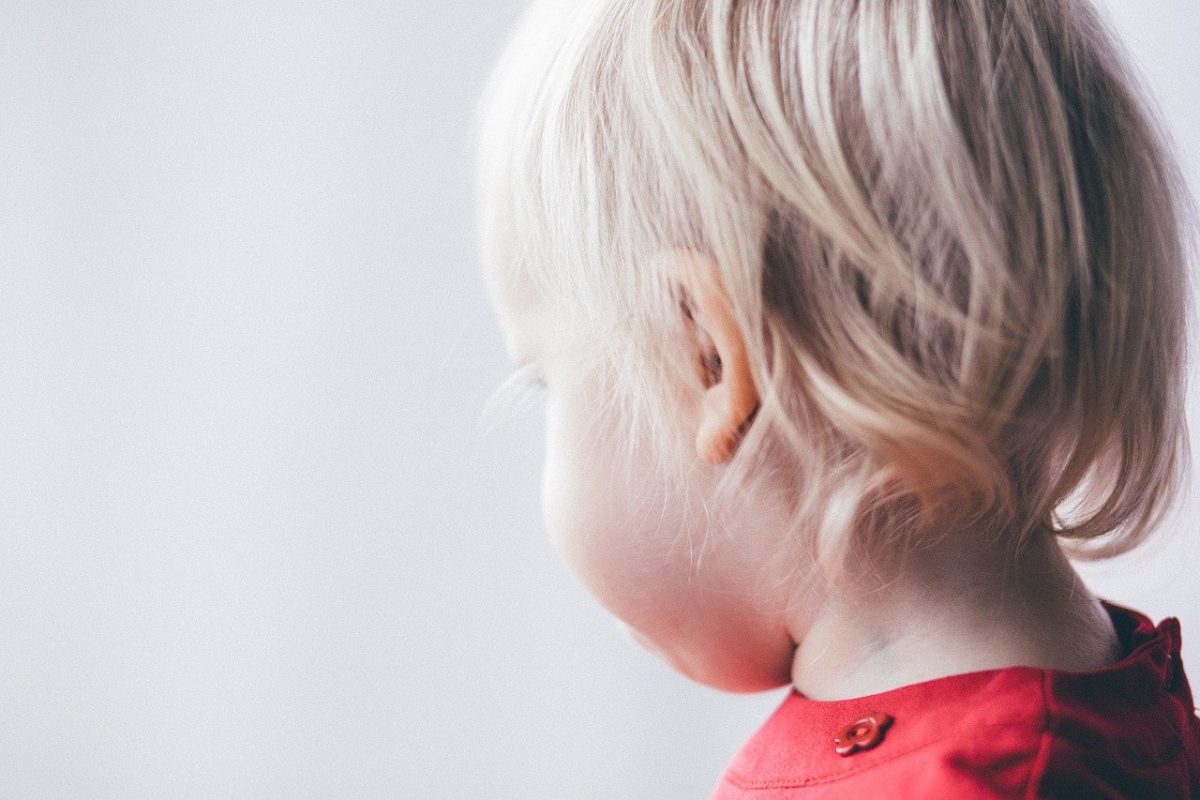
Deafness in children can manifest itself in two ways: there are children who are born with some degree of hearing loss and others who develop hearing loss or deafness throughout their growth. About 2 children for every 1000 already they are born with a hearing problem.
Deafness occurs when either or both ears they don't work normally. To be able to reach this case is when some of the parts of the ear, both middle, external or internal, the auditory system or the auditory nerve they do not work properly.
When does deafness occur in children?
Some deafness is congenital and have occurred during pregnancy or at the time of birth. It usually occurs in premature children with low weight, when there has been meningitis. In those born with a malformation or with pregnant mothers infected with rubella, toxoplasmosis or cytomegalovirus. On other occasions and in 60% of cases deafness in children it has a genetic origin.

Many pediatricians in the first check-ups ask parents to assess your babies' behavior in its first months of life. The observation will consist is knowing if they react well to noise, to a fright, they wake up when there are sounds or if they pay attention to the voices of the parents.
A 6- to 9-month-old baby give sufficient indications that he hears sounds and even searches for them with his head and moving his body. If the parents suspect that he does not react, they can take him to the ENT for an evaluation of the cause.
Signs and symptoms of deafness in children
In babies it is difficult to determine as they are too small to be able to evaluate this possible condition. As usual often startle at a noise strong and from 6 months they already turn their heads in the presence of a noise. At this age, he must make sounds and babble, but if he does not do so or react to noises, it will be a sign that he has a hearing problem.
At 12 months you must hear simple sounds and even react to loud noises like a doorbell. You should also start saying simple words like "mom" or "dad." At 15 months you should recognize your name when called and react by shaking your head to the call.
From 36 months they already begin to say words and even to formulate little phrases, If it is not capable of emitting words and even suspicions that it partially hears some sounds, it is proof that it does not hear well.
Children from the 4 years and they start school they can have learning problems and it can be derived to have a hearing loss. It is necessary to observe that they speak correctly, that they follow everything they have learned and their instructions correctly. That they are not continually saying "what?" or that they raise the volume of the devices a lot.
Tests to determine a possible condition
Babies can be tested in the first month of life, in the same hospital with a hearing measurement. If the child does not pass the evaluation test, he will be referred to another test before he is 3 months old. Hearing tests will consist of a screening: the transient acoustic otoemissions (OEAT) and automatic evoked potentials (PEATCa).
Children in their check-ups should be tested before they enter school so that there are no problems in their learning. If the test is not passed, another evaluation will be made as soon as possible.
Treatments and intervention methods
If the evaluation has been early there are many helps for a create an effective and decisive treatment. The school will participate in their good development, there are deaf associations that offer their best support and the help of speech therapy.
Other treatments may be the placement of hearing aids and cochlear implants, aids in the form of communication with the use of sign language or the intake of some medications. However, family supports and aids are very diverse, you have to do hearing tests as soon as possible so that the child can have a correct development and according to other children.

